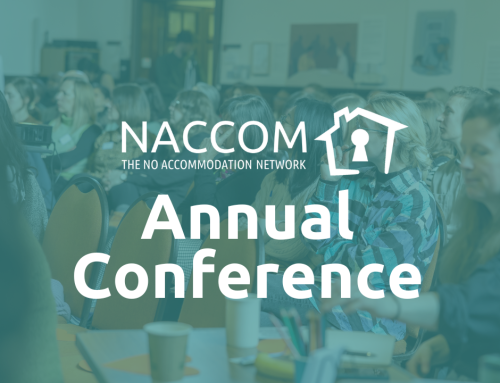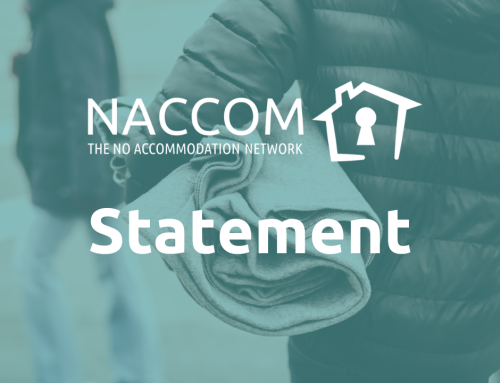In this month’s guest blog, staff at Action Foundation in Newcastle tell us how providing health pop-up sessions at their regular InterAction drop-ins is helping to transform access to healthcare and wellbeing services for their service users. InterAction’s Drop-in Manager Kate Townsend explains more about the initiative.
Why have you introduced the Health Pop-ups?
The health pop-ups make it easier for people seeking asylum to access the healthcare that they need. Navigating the NHS is a confusing element of integrating into the UK, which goes alongside learning the language, living with new people, getting to know a new city and learning how the metro and bus system works.
What are the typical barriers to refugees and people seeking asylum that prevent them from accessing health care in Newcastle?
We’d heard reports of high rates of DNAs (did not attend), ineffective referral routes into the TB screening service, and GP surgeries turning away people seeking asylum who could not provide certain documents. The language barrier is an obvious one, but also not understanding a new system, how a pharmacy works, or when to call 999, are common issues.
How have the sessions gone so far?
We welcomed a range of different services who were able to provide information and advice on different things, including oral hygiene, blood pressure checks, GP services and health costs. The health professionals were able to meet with our clients as well as network with each other, and we know a number of further referrals were made.
What did people think who came along?
Maka, from Georgia: ‘Any health issues make me anxious, but I’m pregnant so I had my blood pressure done – it was a good experience, I was scared but the nurse was very kind and explained everything. Oh, and my blood pressure was fine!’
Yolande, from Ivory Coast: ‘I spoke to the Oral Hygiene people and they gave me a lot of information, it was useful. She gave me a brush that I’ve been using everyday, I really appreciate it.’
Rakeb, from Eritrea: ‘I spoke to the TB nurse who took my details and made me an appointment. I went two days ago, it was completely fine. It was very useful to be referred at the drop-in. Also, my HC2 certificate had ran out so I was able to apply for a new one.’
Some of the health professionals who attended also commented on how they had found the day:
Steph Edusei, Chief Executive at Health Watch Newcastle
“We want people’s honest feedback, good AND bad! We’re here to signpost people in the right direction. What are common complaints? GP Receptionists’ attitudes to asylum seekers and refugees can be really off-putting. Sadly many are not very welcoming or very tolerant of people who don’t have very good English. Calling 999 is often an issue too – there is an interpreter service that is not widely known about or advertised.”
John Lawson – SHINE – HIV Testing Kits
“I want to let people know how quick and easy it is to test for HIV – we offer pin prick test with the results ready in 15 mins. If you get a positive result then you’re referred into a Sexual Health Clinic. The quicker you’re treated the better, with survival rates improving all the time. What are the barriers to people coming forward for testing? Fear, stigma from the community and worries about cost.”
Moriam Ahmed – Newcastle Nutrition – Type 2 Diabetes Awareness
“People from BAME communities are statistically far more likely to develop the disease, so we’re offering information, waist measurement and nutrition advice including a simple plate that illustrates what size your portions should be of salad/veg, protein and starch.”
Erica Ridley – Mobile breast cancer screening units
“I want to let people know that we are a service delivered by women for women. The biggest barrier to women to coming to get their breasts checked is their fear that there will be men there.”
Fiona Cook – TB Nurse Newcastle
“TB is the Number 1 killer disease in the third world above HIV and Malaria, with 21-35 year old men in the high risk category. It’s a highly infectious disease that can be fatal if not treated, so we really encourage people to come and get checked if they’re worried. We tend to see a mixture of international students and asylum seekers/refugees. We offer TB Screening and treatment services to those affected and we see about 15 patients a week.”
Action Foundation will be hosting their health pop-up again between 12-2pm on Tuesday 12th March at CastleGate.
This guest blog first appeared on the Action Foundation website.




